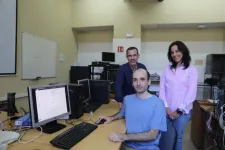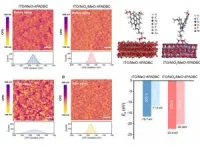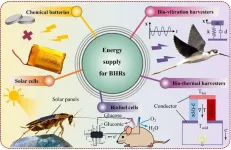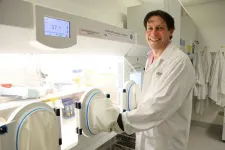(Press-News.org)
A team from the University of Cordoba has designed a model, based on fuzzy logic, that predicts the performance of online education students, dividing them into 4 categories and helping professors give more personalized assistance to each student, tailored to their situations
Distance education has democratized access to knowledge, overcoming problems of time and space. The flexibility and accessibility of this type of system has increased the number of people educated via online platforms. However, due to its large numbers of students, and the lack of the kind of close interaction that classrooms make possible, professors face a big problem: the difficulty of monitoring and adapting learning to their students.
Tools based on Artificial Intelligence can help professors predict their students' performance so that they can adapt their educational strategies to their different learning situations.
To facilitate this adaptation and improve online education, a team from the University of Córdoba formed by researchers Juan Carlos Gámez, Aurora Esteban, Francisco Javier Rodríguez and Amelia Zafra has developed an algorithm that predicts student performance, with four different classifications. Compared to previous models, which predicted this performance only in terms of "passing or failing" or "dropping out or continuing" the course, "this algorithm, based on ordinal classification and fuzzy logic, allows us to predict students' performance while maintaining the order relationships between the categories: dropping out, failure, passing and distinction," explainedAmelia Zafra, a researcher in the UCO's Department of Computer Science and Numerical Analysis.
In this way, the FlexNSLVOrdalgorithm makes better predictions, but also allows professors to better adapt their strategies depending on their students' classifications.
The two advantages offered by this development are the use of ordinal classification with a cost matrix that makes it possible to model the weight of ordinal classes in learning and to make this rankingmore specific. Adapted fuzzy logic, explained UCO Department of Electronic and Computer Engineering researcher Juan Carlos Gámez "allows you some flexibility since, compared to standard logic, which works with specific values, fuzzy logic works with a range of them, and it automatically adapts to the problem using reasoning closer to what we do in our daily lives."
The model is fueled by the data that the online teaching system generates. The characteristics that it takes into account to predict performance are, for example, the completion of specific tasks and questionnaires, students’ grades, and their clicks on the different resources available on the platform.
For researchers, "interpretability" is also key; that is, the possibility of understanding the results that it yields. After tracking students' behavior, the model performs the classification, but also makes itself understood, since "compared to black box algorithms, which tell you if the student will pass or drop out, but don't tell you how or why," this new tool "provides a series of rules for each category, showing the most relevant resources and activities that the student must perform," Zafra explained. Thus, the algorithm could help educators identify students, and be able to use reinforcements or strategies that "for example, rescue students with problems."
In fact, the algorithm even allows professors to determine which types of characteristics are decisive, and which are not, in terms of gauging performance. "Perhaps there's a task that the professor thought was important for this, but it turns out that it's not pivotal to whether the student will ultimately pass or fail," adds Francisco Javier Rodríguez, also a researcher in the UCO's Department of Electronic and Computer Engineering.
The algorithm has been tested using a very large set of freely available Open University Public Learning Data (OULAD) from a large sample of students and courses. In the future this algorithm could be included as an application on online education platforms (like Moodle), and could automatically provide educators with feedback on their students' performance.
Reference
Gámez-Granados, J.C., Esteban, A., Rodríguez-Lozano, F.J. et al. An algorithm based on fuzzy ordinal classification to predict students' academic performance. Appl Intell (2023). https://doi.org/10.1007/s10489-023-04810-2
END
Often introduced unintentionally by human activities, invasive alien species can outcompete and overwhelm native flora and fauna, driving species to the brink of extinction and disrupting the balance of ecosystems. Understanding why exactly they establish in new locations and how they got there in the first place is crucial if we are to mitigate their destructive effects. Unfortunately, there isn’t enough research on this, and the answers might not always be straightforward.
A research team from AgResearch and Better Border Biosecurity (B3) investigated the biological risk posed by ...
A huge step forward in the evolution of perovskite solar cells recorded by researchers at City University of Hong Kong (CityU) will have significant implications for renewable energy development.
The CityU innovation paves the way for commercialising perovskite solar cells, bringing us closer to an energy-efficient future powered by sustainable sources.
“The implications of this research are far-reaching, and its potential applications could revolutionise the solar energy industry,” said Professor Zhu Zonglong of the Department of Chemistry at CityU, who collaborated ...
They published their work on Oct. 18 in Energy Material Advances.
"Constructing a good interface between cathode and electrolyte is crucial for the development of all-solid-state battery," said Chuang Yu, a professor at the State Key Laboratory of Advanced Electromagnetic Technology at Huazhong University of Science and Technology. "Currently, strategies such as coating protect layer on cathode surface and isolating cathode/sulfide electrolyte by halide electrolyte layer are typical solutions to solve the problems at the interface between the cathode and the sulfide electrolytes, but it is not yet clear who is more suitable for sulfide-based all-solid-state ...
Bio-machine hybrid robots (BHRs) represent a new generation of micro-aerial vehicles that be controlled by building an interface between biological and artificial systems. In contrast to conventional bionic robots, they are free of complex mechanical structures, and due to the direct adoption of the animal body, they have superior moving characteristics and lower energy demand. Thus, the BHRs can be applied in many important scenarios, such as urban and wilderness rescue operations, environmental monitoring and hazardous area surveys.
To accomplish long mission endurance, the energy supply ...
Johns Hopkins researchers looking to develop a long-acting, injectable malaria preventive using atovaquone have shown in a new study that resistance may not be the challenge scientists thought it was, particularly when using atovaquone as a malaria preventive. Malaria parasites in infected patients being treated with atovaquone tend to develop a resistance to the drug. Because of this, atovaquone by itself is not used as a malaria treatment nor has not been seen as a strong candidate for use as a preventive.
The study, led by a team of researchers at the Johns Hopkins Malaria Research Institute and the Johns ...
New findings from researchers at UCLA Health suggest that measuring changes in how pupils react to light could help predict recovery from depression and personalize transcranial magnetic stimulation (TMS) treatment of major depressive disorder.
TMS is a safe, non-invasive therapy that uses magnetic fields to stimulate parts of the brain involved in mood regulation. While TMS is proven effective, not all patients respond equally well to the therapy. The ability to predict who will benefit most could allow doctors to better customize ...
Women with diets during middle age designed to lower blood pressure were about 17 percent less likely to report memory loss and other signs of cognitive decline decades later, a new study finds.
Led by researchers from NYU Grossman School of Medicine, the new findings suggest that a mid-life lifestyle modification – adoption of the Dietary Approaches to Stop Hypertension, or DASH diet – may improve cognitive function later in life for women, who make up more than two-thirds of those diagnosed with Alzheimer’s disease, the most prevalent form of dementia.
The findings, published online today in ...
The winners of the Society’s prestigious annual Awards for 2024 have all contributed to improving knowledge and expertise in endocrinology and have helped drive innovation and progression across the field.
Each of these deserving winners will be presenting a plenary lecture at ESE’s annual Congress, the European Congress of Endocrinology (ECE) 2024, which will be held in Stockholm, Sweden from 11-14 May 2024.
The 2024 Geoffrey Harris Award is being presented to Jens C. Brüning (Germany). This Award recognises outstanding researchers in the field of neuroendocrinology. Jens Brüning is the Director of the Max Planck Institute for Metabolism Research ...
The more diverse species in your gut, the better it is for your health. Now an international team led by the Hudson Institute of Medical Research has found a way to determine which species are important and how they interact to create a healthy microbiome.
Understanding these relationships opens the door to a new world of medical opportunities for conditions from Inflammatory Bowel Disease to infections, autoimmune diseases and cancers.
Associate Professor Samuel Forster and his team at Hudson Institute of Medical Research, working with collaborators from the Institute for Systems Biology in ...
Felix Beuschlein is Professor of Internal Medicine/Endocrinology and Director of the Clinic for Endocrinology, Diabetology and Clinical Nutrition at the University Clinic Zurich in Switzerland. He received his medical degree from School of Medicine at the University of Würzburg and completed his medical training in Freiburg, both in Germany. For postdoctoral studies he joined the University of Michigan in Ann Arbor. Following a professorship for Endocrine Research at the University of Munich, he was elected for a chair position at the University of Zurich in 2017.
The Transatlantic ...







